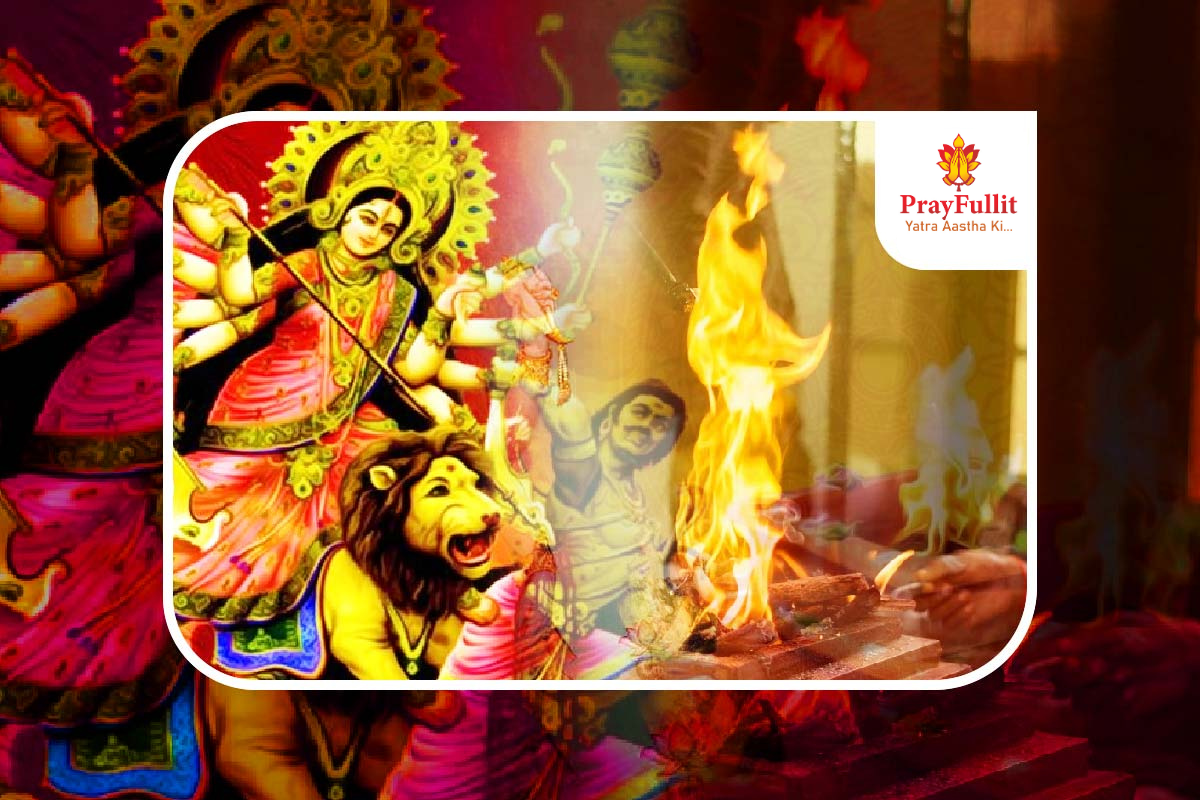Chandi Havan Online – Book Expert Pandits for Power & Protection
The Chandi Havan is one of the most powerful and elaborate Vedic fire rituals, dedicated to Goddess Durga in her fierce form as Chandi. This Homa is considered the ultimate remedy for overcoming severe obstacles, winning over enemies (Shatru Mukti), and clearing intense negative energies. By reciting the 700 verses of the Devi Mahatmyam (Chandi Path) and offering them into the sacred fire, devotees invoke the Supreme Feminine Energy to grant them victory, protection, and unparalleled spiritual strength.
At Prayfullit, we provide highly trained Vedic Pandits who are experts in the complex intonations of the Saptashati. Our scholars ensure that every Shloka is recited with the correct Bhav (emotion) and Swara (tone) to manifest the Goddess's presence in your home.
Benefits of Chandi Havan (Chandi Homa)
- Victory & Success: Grants the strength to overcome competition, legal battles, and hidden enemies.
- Removal of Obstacles: Clears deep-seated karmic blocks that stop progress in business, career, and personal life.
- Divine Protection: Acts as a powerful shield against the "Evil Eye," black magic, and sudden misfortunes.
- Mental Strength: Infuses the devotee with courage, confidence, and the willpower to face life's toughest challenges.
Who Should Perform Chandi Homa?
- Individuals Facing Severe Crises: Those going through a period of extreme struggle or loss.
- Business Owners: To remove "Nazar" and attract growth and professional dominance.
- Families Seeking Peace: To clear the household of lingering negative vibrations and disharmony.
- During Navaratri: This is the most meritorious time for every household to perform Chandi Homa.
Preparation for Chandi Havan
To prepare for the Chandi Havan, please organize the following:
- The Havan Kund: Placed in the East or North-East, decorated with Kumkum and flowers.
- Essential Samagri: Dried Mango wood, Shuddha Ghee, Pancha Meva (five types of dry fruits), honey, and Red Sandalwood.
- The Altar: A picture or idol of Goddess Durga/Chandi, adorned with a Red Chunri and fresh red hibiscus or roses.
- Personal Readiness: Participants should wear clean Red, Yellow, or Saffron attire. Maintaining a strict vegetarian diet and a focused, meditative state before the Homa is essential.
Auspicious Days for Chandi Havan
- Navaratri: The nine nights of the Goddess are the supreme window for Chandi Homa.
- Ashtami & Navami: The 8th and 9th days of the lunar cycle are specifically dedicated to the Goddess's power.
- Tuesdays & Fridays: Days governed by Mars and Venus, associated with the protective and benevolent forms of the Devi.
- Purnima (Full Moon): A day of peak feminine lunar energy, perfect for Chandi Upasana.
Authentic Vidhi: The Detailed Ritual Process for Chandi Havan
Our Pandits follow the Markandeya Purana protocols for a high-intensity ceremony:
- Sankalp: A formal declaration of intent—seeking protection, success, or the fulfillment of a specific wish.
- Ganpati & Navagraha Pujan: Invoking the deities to ensure a smooth and balanced ritual.
- Devi Mahatmyam Path: The recitation of the 700 verses of the Durga Saptashati.
- Chandi Homa: Offering Ahutis (oblations) into the fire for each verse, or specific key mantras like the Navarna Mantra.
- The Core Mantra: "Om Aim Hreem Kleem Chamundayai Vichche"
- Kanya Pujan: Often, young girls (Kanyas) are worshiped as living embodiments of the Goddess after the Havan.
- Purnahuti: The grand final offering that symbolizes the total surrender of ego and the completion of the sacrifice.
- Aarti & Prasad: Concluding with the Durga Aarti and the distribution of sanctified food.
Why Choose Prayfullit?
- Textual Accuracy: Our Pandits are fluent in the Saptashati, ensuring no verse is skipped and every syllable is vibrationally correct.
- Authentic Samagri: We provide a curated list of ingredients, including the specific herbs (Aushadhi) required for Chandi Homa.
- Ritual Guidance: From the first Kalash Sthapana to the final Kanya Pujan, our pandit provides complete ritual guidance.
Book Your Chandi Havan Today
Invoke the Supreme Mother and transform your life. Our expert Pandits perform the authentic Chandi Havan at your location, utilizing traditional red offerings and the sacred Chandi Path to ensure your absolute protection and victory.
Download the Prayfullit App
Bring authentic Vedic rituals to your fingertips with the Prayfullit App. Easily book verified Pandits for home visits, get real-time Shubh Muhurat alerts, and access complete Puja Samagri checklists for every ceremony. Stay connected to your spiritual journey ritual tracking and daily divine insights—all in one place
